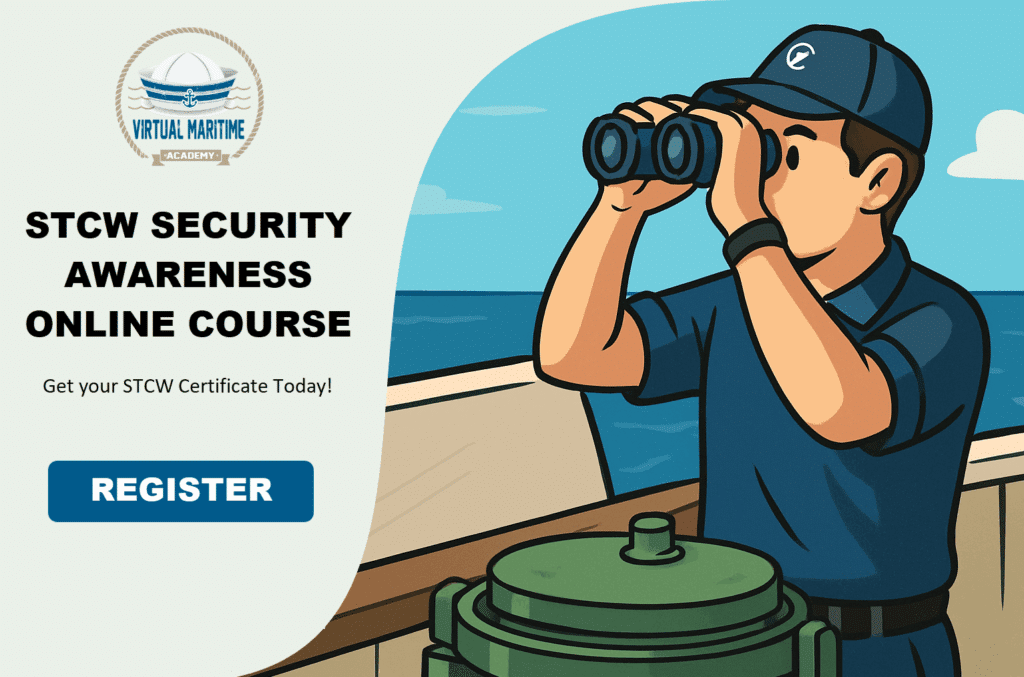Every day in the maritime industry presents unique challenges, particularly for those tasked with safeguarding our ports. In this intriguing exploration of ‘A Day in the Life of a Port Facility Security Officer,’ we will dive deep into the varied responsibilities and routines that shape the work of these crucial personnel. From the vital morning briefings to the vigilant monitoring activities and the unexpected nature of emergency responses, join us as we uncover what it truly means to ensure the security and integrity of our port facilities.
Learn More About Our Courses Here!
Key Takeaways
- Port Facility Security Officers start their day with a thorough briefing to outline security priorities.
- Monitoring and surveillance are critical tasks that ensure the safety and security of port operations.
- Emergency response protocols are crucial for handling potential threats or incidents effectively.
- Documentation through end-of-day reports helps track security measures and bolster communication among staff.
- Reflection on daily experiences allows officers to improve their practices and stay vigilant for future challenges.
Morning Routine and Briefing Procedures
A day in the life of a Port Facility Security Officer begins early, with a meticulously structured morning routine that sets the tone for the day ahead. Upon arrival at the facility, the officer conducts a thorough briefing with the security team, reviewing the security protocols and updating everyone on any changes in regulations or expected activities within the port area. This briefing is crucial for ensuring that all personnel are aligned and aware of their responsibilities, particularly concerning the security of cargo and personnel within the facility. After the briefing, the officer inspects key access points, checks surveillance systems, and engages with on-site staff to foster a cooperative atmosphere. This proactive approach not only enhances the security measures in place but also helps in identifying potential vulnerabilities before they can be exploited. Establishing clear communication and an organized routine is fundamental to the effectiveness of a Port Facility Security Officer, ensuring that they can swiftly respond to any incidents while maintaining the integrity of the port.
Monitoring and Surveillance Activities
Monitoring and surveillance activities play a crucial role in ensuring the security of maritime operations. In this context, let’s explore a day in the life of a Port Facility Security Officer (PFSO). The PFSO is tasked with overseeing security measures throughout the port, which includes the constant monitoring of CCTV cameras and conducting regular patrols to identify any unauthorized access or suspicious activities. Starting before dawn, the PFSO reviews the previous day’s security logs and analyses any incidents that occurred. As the day unfolds, they coordinate with local law enforcement agencies and oversee security drills to ensure that all personnel are well-prepared for potential emergencies. Utilizing cutting-edge technology, the officer also analyzes data from various sensors and alarms, ensuring that everything runs smoothly and that the safety protocols are effectively implemented. Through vigilant attention and strategic oversight, the PFSO plays an indispensable role in upholding maritime security, safeguarding both the facility and the vessels that transit through the port.
Learn More About Our Courses Here!
Emergency Response Protocols
A Day in the Life of a Port Facility Security Officer involves a meticulous routine of vigilance and readiness, especially when it comes to emergency response protocols. These officers are the front line of defense at maritime facilities, tasked with ensuring safety and security for all operations. Each day begins with comprehensive briefings, where the officer reviews potential threats, security updates, and emergency measures. Regular drills are conducted to ensure that all personnel are familiar with evacuation routes and procedures during a crisis. When an emergency arises, whether it’s a natural disaster like a hurricane or a security breach, the Port Facility Security Officer must act swiftly, coordinating with local authorities and other emergency responders. Communication is key; they utilize advanced surveillance systems and two-way radios to relay critical information and maintain a safe environment. As a result, the role of the Port Facility Security Officer is not just about monitoring but also about proactive planning and reactive execution, exemplifying the importance of emergency response protocols in maritime security.
End-of-Day Reports and Reflections
At the close of each bustling day at the docks, the vital role of a Port Facility Security Officer becomes a focal point of reflection and documentation. A Day in the Life of a Port Facility Security Officer typically concludes with thorough end-of-day reports, crucial for maintaining comprehensive security oversight and ensuring compliance with maritime regulations. These reports consolidate observations, security incidents, and interactions, serving as a legal record and guiding future security protocols. In this reflective process, officers assess the effectiveness of their daily operations, identifying gaps and success stories in port security measures. By documenting unusual activities or safety concerns, they contribute to a continuous cycle of improvement that enhances overall security infrastructure. These reflections not only provide valuable insights into the day’s events but also facilitate better preparedness for the challenges faced in future shifts, solidifying the officer’s role as a key player in protecting maritime assets and upholding safety standards.
About Virtual Maritime Academy
Virtual Maritime Academy is a leading provider of online maritime education and training, offering a wide range of courses designed to meet the needs of the global maritime industry. With a commitment to quality and innovation, Virtual Maritime Academy is dedicated to preparing seafarers and maritime professionals for success in their careers. Now a DNV Certified Maritime Training Provider, the academy upholds the highest standards of excellence in training and education.












